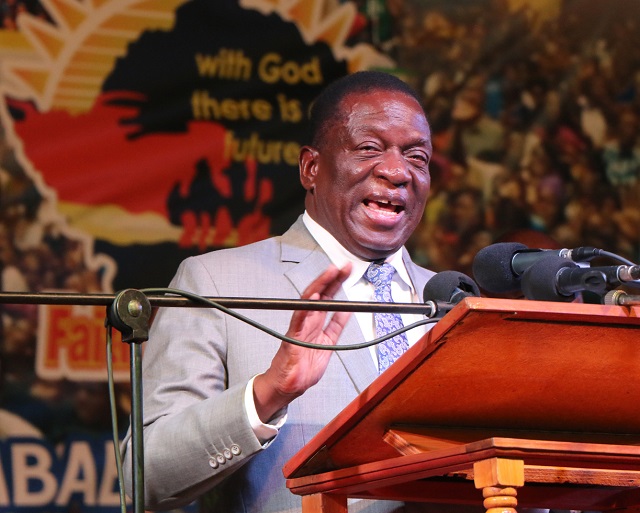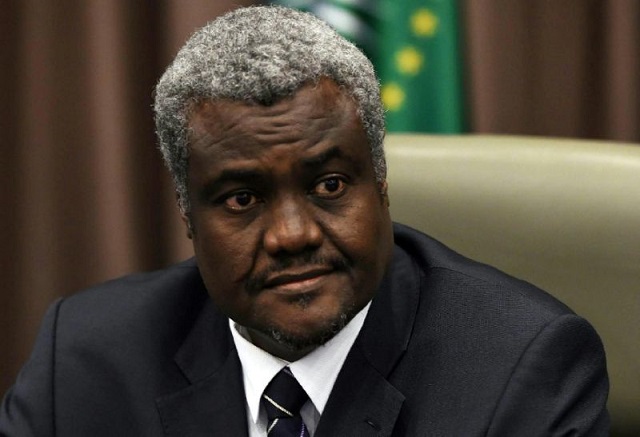EDITORIAL COMMENT: Davos is gone; hard work begins

Davos was the word on every Zimbabwean’s mouth last week.
It was a big moment for all of us, having our President attending the globe’s premier business networking occasion that started on Tuesday and ended on Friday. President Emmerson Mnangagwa made history as he became the first Head of State and Government from our country to be invited to the World Economic Forum, august event that takes place for four days in January every year in Davos, Switzerland.
President Mnangagwa and his team arrived back home yesterday as from Switzerland, he flew to Addis Ababa, Ethiopia to attend the 30th Ordinary Session of the Assembly of the Union that started on Sunday and ended yesterday.
Davos 2018 was a roaring success for him and his team. It was a success for Zimbabwe. He and his delegation were able to meet some of the world’s most influential business leaders among them International Monetary Fund managing director Christine Lagarde, World Bank chief executive officer Kristalina Georgieva, Switzerland President Alain Berset, African Development Bank President Dr Akinwumi Adesina, Vice President of Nigeria, Yemi Osinbajo and African National Congress president, Cyril Ramaphosa. He also had meetings with top private sector officials including the bosses of Nestle and Tongaat Hulett, two firms that have operations in our country.
In addition to these top-level meetings, President Mnangagwa had long interviews with CNN and BBC, two of the world’s international news channels.
He addressed a luncheon attended by scores of Swiss and international businesspeople, hosted by the Africa Swiss Business Circle and sponsored by Quantum Global.
“I don’t know how the conference felt about my presence,” he reflected. “But I was quite at home. I met people I have never met before like Al Gore (former US Vice President), John Kerry, former US secretary of State and other world leaders. But more importantly, I had businesses, banks and other institutions lining up to see me. I am unable to fulfil some of the requests (for meetings). So many leaders I have met who have promised to send representatives to Zimbabwe and are interested to invest. But there are two categories; some are saying they will wait for elections. It’s understandable because of the past events and the perception about Zimbabwe, some people would like to ‘wait and see’. But the majority, however, are keen to find a niche and eager to invest in Zimbabwe.”
It was a packed programme for him but he acquitted himself extremely well. He was the star attraction given the drama that defined his rise to power and the negative signals that our country was associated with since 2000. He told his audiences that Zimbabwe was now open for business and is implementing far-reaching reforms to consolidate that.
But after the flurry of activity in Davos and the wide public interest it generated at home, the time has come now for us to build upon that momentum to attract the much-needed investment into our famished economy.
The past two months of his government have been great for our country. There is a massive amount of goodwill across the board, at home and abroad.
Important institutions – the IMF, World Bank and AfDB – and cash-rich investors are showing a willingness to reengage and to put their money into our economy, thus play a most critical role in its recovery and growth.
The period of international isolation is gone; the time for Zimbabwe to enclose itself in a cocoon when everyone else is opening up are gone. The time for us to think that we can only look east and prosper economically when even those we look up to in the east are looking west and in the other directions and prospering economically are gone. Now is the time to build bridges for mutual benefit for our economy and investors. Davos was the big stage to demonstrate this break from the past and the opening of a new chapter in relations between Zimbabwe and the rest of the world.
Investment inflows started picking up when President Mnangagwa assumed office last November and after Davos, we expect more. He has already said the volume of foreign capital flowing into the country since then has shot up. Also, the Government expects the economic growth rate to exceed the 4,5 percent Treasury came up with in December last year. Acclaimed global think tanks agree.
As we mentioned earlier, we, as a country, need to harness the international and local goodwill for economic recovery and growth.
Government officials must be always ready to provide detailed information that prospective investors need to expedite the execution of projects.
Furthermore, ministries should intensify ongoing efforts to improve the ease of doing business.
It is noteworthy that any deals to be negotiated must not leave us poorer but wealthier. There is always a possibility that our collective excitement arising from bright prospects ignited by the political transition might cloud our better judgment in negotiating deals. This is very important because investors, especially international ones, are very experienced in that area. If they face an inexperienced government team that is also desperate to reach agreements for investment to come, the result can be a kind of rip-off. We don’t like that. We want a win-win situation, which is why we are urging government negotiators to be up to the task.











Comments